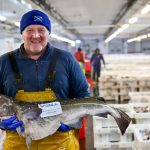It is said that the aboriginal patrol maintains a running commentary about what seems a featureless blue expanse. Off the port bow is a breeding ground for dugongs, the slow-moving sea cows still hunted by Aborigines in the Northern Territory, further on, a spot where traps have been laid to snare a five metre (16.4 foot) crocodile.
According to Cooper they haven’t got him yet, keeps giving us the slip. But Cooper turns serious as his open-topped aluminium craft approaches a submerged reef where an Indonesian fishing vessel ran aground about three years ago. Cooper is a sea ranger off the Northern Territory’s Arnhem Land, part of an effort by authorities to use indigenous know-how to curb illegal fishing in the remote area.
Djelk ranger coordinator Shaun Ansell said the poachers used “incredibly destructive” fishing methods, including gill nets which indiscriminately scour the ocean and long lines that ensnare bird life. He further said that it was very distressing for our rangers to come across this massive waste of the resources that we all depend on around here.
While large Customs ships still conduct weekly sweeps on the high seas, Ansell said his rangers came into their own in the shallower coastal waters most often targeted by maritime poachers. The Djelk rangers have also proved successful against Australian commercial fishing vessels exceeding their quotas or operating in sacred Aboriginal sites, assisting in three successful prosecutions in the past year.








